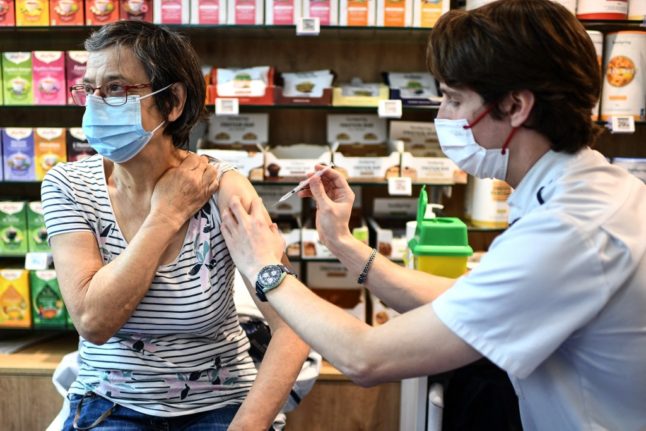The vaccination campaign will start on Monday, October 2nd – brought forward from its original mid-October start date because of rising case numbers.
The first week of la rentrée saw more than 50,000 new cases recorded. Health minister Aurélien Rousseau that due to “the current increased circulation of the virus”, the start date of the autumn vaccination campaign will be brought forward to the beginning of October.
The vaccination campaign will focus on those at the greatest risk from the virus, but the government clarified on Friday that “anyone, even if they are not in the recommended target group, will be able to get the Covid vaccine free of charge this autumn”.
Cases of the virus have been rising globally in recent weeks with the discovery of a new variant and the World Health Organisation has recommended that governments make efforts to ensure their populations are up to date with vaccines.
There is no suggestion of the return of the vaccine pass.
When
The new start date is Monday, October 2nd, brought forward from the original date of October 17th.
Who
The first phase of the campaign will target at-risk groups. Those are;
- Over 65s
- People with a condition that puts them at higher risk of developing the most serious forms of Covid eg obesity, diabetes or a chronic health condition
- Pregnant women
- Immunocompromised people
- Healthworkers, carers or anyone who regularly comes into contact with people in high risk groups
- People who have not previously had a Covid vaccination
In all cases, it will not be given to people who have had either a booster shot or had Covid within the last six months.
Those not in one of the above groups will not receive an invitation to be vaccinated, but they will be able to get a vaccination if they want it, and will not have to pay for it.
It is not yet clear whether this will be available from October 2nd – the model of the seasonal flu vaccination campaigns is that high-risk groups are invited first and then the vaccination is opened up to the general population a few weeks later.
Where
As with the seasonal flu vaccines, injections will be given mainly in pharmacies or doctor’s offices – the government does not envisage re-opening the vaccine centres.
Pharmacists will be able to give the vaccine without the need for a prescription.
Which vaccines
Pfizer and Moderna have both developed new vaccines which target the most recent strains of the Covid virus, known as XBB.1.5, and the European Medicines Agency approved these for use within the EU on August 30th.
Pfizer and Moderna had previously said they would be able to deliver these in Europe “by mid October”.
What about flu vaccines?
The seasonal flu vaccination campaign will begin on October 17th. From that date it will be possible to get both the Covid and flu vaccines at the same appointment – the French health ministry recommends getting one vaccine in each arm. Like the Covid vaccine, the seasonal flu vaccine will be available via pharmacies.
Why
“Covid continues to cause serious illness and death, particularly in the immunocompromised and the very elderly”, epidemiologist Antoine Flahault told le Parisien.
“The aim is therefore to boost protection, particularly against severe forms of the disease, before the onset of winter, which is conducive to the circulation of respiratory viruses.”
The discovery of another new variant has also given some cause for concern, although at this stage it does not appear that Omicron XBB.1.5 causes more serious symptoms.



 Please whitelist us to continue reading.
Please whitelist us to continue reading.
Member comments